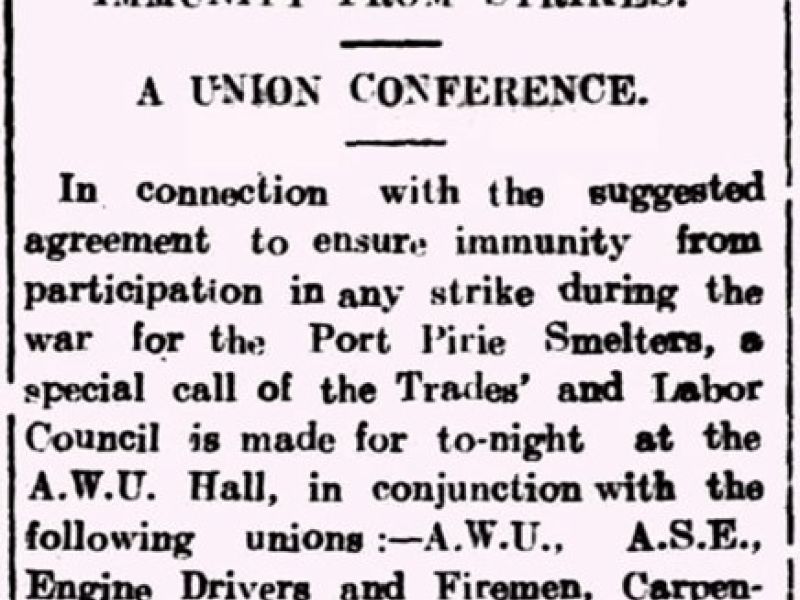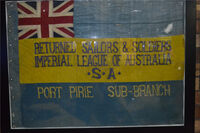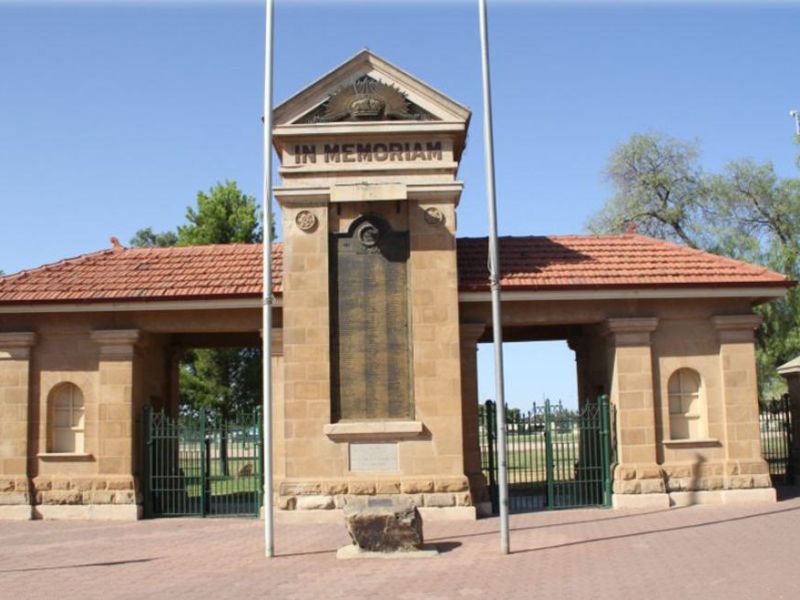Lead Supply or Strike Action
By 1917, the Port Pirie Smelter formed the one main source of supply of lead for all the Allies in Europe. Output had been increased from 74,000 tons in 1914 to more than 156,000 tons.
Union delegates in Port Pirie and Broken Hill demanded better pay and conditions for workers; with the company ‘capitalists’ reaping big profits during the war. This was regarded in some circles as an insult to patriotism.
At that time, the continuity of the supply of lead for the Allies was of paramount importance. Threatening strike developments in Port Pirie was feared, for the Barrier (or Broken Hill men) were out on strike, and were making desperate efforts to get the Pirie men out.
On the 21st August 1917, William Robertson, General Manager of Port Pirie Smelters made an impassioned appeal to the unionists on the front page of the local newspaper; the Port Pirie Recorder and North Western Mail.
"Should we, in Port Pirie, fail to supply the lead, history may declare that the greatest war of all times was lost, not on the blood-stained fields of Europe, but in Port Pirie, where well paid, well-conditioned workmen failed to see the path of duty”.
An “Immunity from Strikes” ballot was favourably passed by members of the Australian Workers Union (the largest union concerned) whether or not he favours an agreement which will give the Port Pirie Smelter immunity from participation in any strike during the war in a vote of “four to one against striking”. The workers had refused to cease work; considering such action would have been most detrimental to the best interests of the Empire at such a critical period of the war.
The various unions at the Smelter made their wartime collaboration official by attending a conference at BHP’s headquarters in Melbourne where they signed a pledge not to take any strike action for the duration of the war.
The Prime Minister of the day, Billy Hughes, stated that “he was proud of the action of the Pirie men”.
It should be stated for the record that at the height of the crisis, the Broken Hill Associated Smelters’ Proprietary Limited management had received many offers from women who wished to work and keep the munition supply going. Many women also asserted themselves in demonstrations, having relatives at the front whose lives depended upon a continuous supply of the necessary munitions to beat down the attacks of the enemy.
By wars end the smelter men of Port Pirie had supplied more than 53% of the total Allied war effort in lead; a remarkable feat.

 RSL (Port Pirie Sub Branch) Inc.
RSL (Port Pirie Sub Branch) Inc.